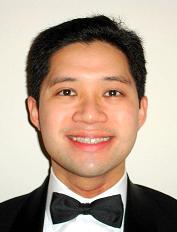New York University's Robert F. Wagner Graduate School of Public Service is a public policy school that offers a comprehensive curriculum in public and nonprofit policy and management, health policy and management, international development, and urban planning.

Arthur Raphael Miller, is a leading scholar in the field of American civil procedure and a University Professor at New York University and Chairman of The NYU Sports & Society Program.

Wachtell, Lipton, Rosen & Katz is a law firm which operates out of a single office in New York City. The firm is known for business law, regularly handling the largest and most complex transactions. The firm is also noted for having the highest revenue per lawyer and profit per partner of any law firm in the United States.

Henry Jacob Friendly was a United States Circuit Judge of the United States Court of Appeals for the Second Circuit.
The New York University Steinhardt School of Culture, Education, and Human Development is the secondary liberal arts and education school of New York University. Founded in 1890, is the first school of pedagogy to be established at an American university. Prior to 2001, it was known as the NYU School of Education.
Martin Lipton is an American lawyer, a founding partner of the law firm of Wachtell, Lipton, Rosen & Katz specializing in advising on mergers and acquisitions and matters affecting corporate policy and strategy. From 1958–1978 he taught courses on Federal Regulation of Securities and Corporation Law as a Lecturer and Adjunct Professor of Law at New York University School of Law.
Sally Katzen is an American lawyer, legal scholar, and government official. Katzen was a member of the Obama-Biden Transition Project's Agency Review Working Group responsible for the Executive Office of the President and government operations agencies, and held White House positions in the Clinton administration, including as Administrator of the Office of Information and Regulatory Affairs.

Richard L. Revesz is the director of the American Law Institute and a law professor and dean emeritus at the New York University School of Law. He is one of the nation's leading experts on environmental law, regulatory law, and policy.

David Benjamin Lat is an American lawyer, author, and legal commentator. Lat is the founder of Above the Law, a website about law firms and the legal profession.
David S. Cunningham III is a California attorney. He serves as Los Angeles County Superior Court Judge in multiple assignments in family law, probate and in complex civil assignments presiding over products liability cases, labor related class actions and mass torts. He was appointed to the court by Gov. Arnold Schwarzenegger on January 22, 2009.
The Constitution Project is a non-profit think tank in the United States whose goal is to build bipartisan consensus on significant constitutional and legal questions. Its founder and president is Virginia Sloan. The Constitution Project’s work is divided between two programs: the Rule of Law Program and the Criminal Justice Program. Each program houses bipartisan committees focused on specific constitutional issues.
The New York University Annual Survey of American Law is a student-run law journal at New York University School of Law.

Julie Brill is an American lawyer who served as a Commissioner of the Federal Trade Commission (FTC) from April 6, 2010 to March 31, 2016. She is currently corporate vice president and deputy general counsel for Privacy and Regulatory Affairs at Microsoft.
Roger M. Milgrim is an intellectual property lawyer, and the author of two multivolume law treatises: Milgrim on Trade Secrets and Milgrim on Licensing. Beginning in about 2007, these two treatises were updated by Eric E. Bensen, of the New York Bar, and Roger Milgrim. These two treatises are companions to other major intellectual property treatises in the LexisNexis IP series, which includes Chisum on Patents and Nimmer on Copyright, which are cited by the U.S. Supreme Court and other courts, including by the Court in Kimble v. Marvel Entertainment LLC, 135 S. Ct. 2401, 2408 (2015). In late 2012 Milgrim's Guide to IP Licensing was published Wolters Kluwer.
The Constitutional Sources Project (ConSource) is a non-profit organization that provides source documents on the history of the United States Constitution available for research.
Leonard M. Rosen was an American bankruptcy lawyer, and a co-founder of the prominent New York firm Wachtell, Lipton, Rosen & Katz.
Samuel James Rascoff is an American legal scholar and Professor of Law at New York University School of Law, regarded as an expert in national security law.

James Cole Jr. is an American politician who served as the acting Deputy Secretary of Education from 2016 to 2017, serving under the Obama administration.
The Advantage Testing Foundation is a national not-for-profit educational organization based in New York City, New York. Founded in 2007 by Arun Alagappan, the 501(c) public charity seeks to expand academic and professional opportunities for students of every socioeconomic background by sponsoring innovative educational programs and partnering with leading institutions across the United States.











